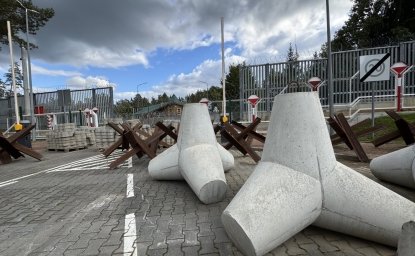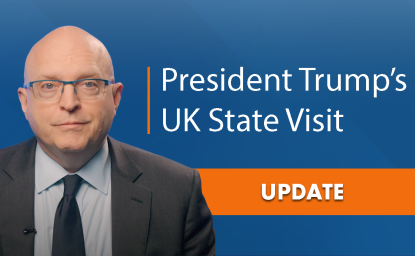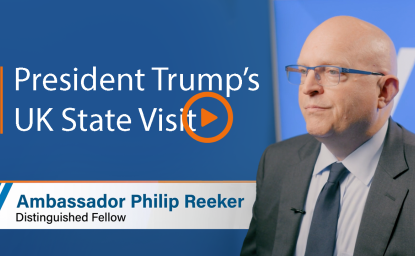The Four I's of Counterterrorism
How can the United States forge a more effective counter-terrorism policy? Former Congressman Lee Hamilton lays out a formula for action.
How can the United States forge a more effective counter-terrorism policy? Former Congressman Lee Hamilton lays out a formula for action.
The 2004 election was the first to focus heavily on terrorism, but it will not be the last. For George Bush and his successors, counter-terrorism policy will be a top priority. In the wake of this divisive campaign, now is the time to talk about how our country can come together to meet this challenge.
For the last few months, I've talked to a lot of people about the 9/11 Commission and our recommendations. Terrorism is an enormously complicated subject to address because the threat is so unpredictable, and there are so many angles to the anti-terrorism fight. You could pick a different topic to highlight every time. The formula that I've been stressing with audience after audience is the need for the "four I's": identification, intelligence, integration, and international cooperation.
What do I mean? By identification, I mean our strategy must clearly identify the enemy. That is not as easy as you think. Pick up a news story about Iraq and you'll find mention of "terrorists," "foreign fighters," "insurgents," "Iraqi nationalists," and "al Qaeda affiliates," just to name a few. Meanwhile, all of us speak of a "war on terror," which suggests we are at war with anyone who engages in terrorism anywhere – from Colombia to the West Bank to Sri Lanka. So who is the enemy?
We should be more specific. We are fighting two enemies: al Qaeda, the network of terrorists responsible for 9/11; and a global movement of radical Islam, which has spawned groups that have killed from Madrid to Jakarta. The first enemy must be destroyed. The second enemy must be combated by many means over many years. Our aim should be to prevail over the ideology that gives rise to Islamist terrorism, while protecting ourselves against attacks.
Intelligence is our most important tool in preventing terrorist attacks. The tragic story of 9/11 is one of our intelligence agencies failing to coordinate, share, analyze, and act on information. Right now, the status quo that failed us is very much in place. That is unacceptable. The 9/11 Commission urgently recommends a new structure, with an empowered National Intelligence Director, so that someone has the authority to set priorities, manage cases, and smash agency stovepipes; and a National Counter-terrorism Center, to ensure that agencies share information, and analyze – and act upon – information jointly.
Intelligence or military force alone will not defeat Islamist terrorism. We need to integrate all elements of American power: diplomacy, to build coalitions; law enforcement, to track down and prosecute terrorists; covert action, to disrupt and dismantle terror networks; public diplomacy, to explain our policies and our ideals; foreign aid, to bring hope to hopeless societies; economic policies, to spread markets and opportunity; financial action, to track or disrupt terrorist financing; border security, to intercept terrorists in transit; and homeland security, to secure our transportation, protect our infrastructure and train our first responders.
Integration is key. We cannot succeed if these tools work in isolation from one another. We cannot have border agents who do not know who they are looking to stop; first-responders who do not know what attacks might come; or law-enforcement officials who do not know what the intelligence is reporting. Like a team working together, every action in counter-terrorism must complement or buttress our other actions.
The same is true internationally. With an enemy that operates globally, every counter-terrorism action is strengthened by international cooperation. You cannot secure your own skies without securing international aviation; you cannot cut off terrorist financing without working with foreign banks; you cannot build the peace in Afghanistan without allies sharing the burden. We need a sustained coalition, cooperating bilaterally or multilaterally, on the entire range of counter-terrorism issues.
This includes the Islamic world. One of the great challenges to American foreign policy in the coming years is avoiding a clash of civilizations with 1.3 billion Muslims, too many of whom grow up lacking political freedom, economic opportunity and hope. Our long-term goal must be reaching out to the Islamic world with an agenda of opportunity that stresses economic development, better schooling, and pragmatic political reform.
No American enjoyed seeing Osama bin Laden on television. It reminds us of the potency of the threat, and the horror of 9/11. President Bush should use the four Is – identification, intelligence, integration, and international cooperation – to forge a strategy that goes after bin Laden and the terrorists, protects our homeland, and conveys to the world that the United States stands for a better future.


